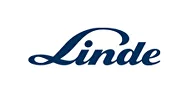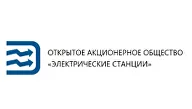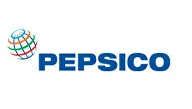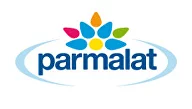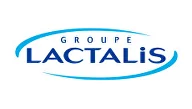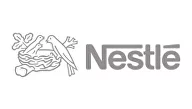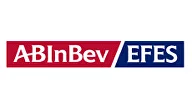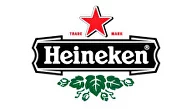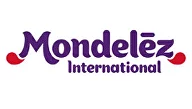Make your own pasteuriser
How to reduce the cost of installing a new pasteurizer? You can independently assemble the pasteurizer on site under the remote control of Viravix Engineering experts. This will not void your warranty rights.

We use QiVisor Web remote monitoring system for remote support and project implementation. Our engineers, together with the Meta Systems team, developed and successfully tested QiVisor during the pandemic, when, due to restrictions, our engineers could not personally travel to customer factories.
How to assemble the pasteurizer by yourself?
What is included in the DIY service from Viravix
- we will prepare the equipment installation project;
- we will select and purchase a pasteuriser;
- we develop assembly drawings, installation manuals and a 3D model of the future machine and send them to you;
- order components for assembly from the manufacturer;
- we will train your employees;
- provide remote support for installation, commissioning via QiVisor;
- we will take the facility under warranty.
You need technicians who are able to understand the drawings and manuals and make the mechanical assembly according to them.
Tests and commissioning will also be carried out under our supervision.
Contractors or equipment manufacturers do not always trust the client to install and commission the pasteurizer. They may refuse warranty service if the customer performs such work on their own. They do not control the assembly process and therefore cannot be held responsible for the quality.
We have considered all risks and developed a step-by-step algorithm in our DIY pasteuriser service to avoid installation errors. You get a functioning machine and you save on two components:
- the contractor’s engineers’ travel costs are about 300 euros per day;
- the cost of components for assembly – we will purchase them ourselves at a 15-20% discount as an engineering company.
Viravix Engineering cooperates officially with the equipment manufacturers as a representative and provides service. We will take over the pasteuriser for warranty service.
We use QiVisor Web to monitor the pasteuriser installation remotely. At this stage, the customer will be able to assess the usability of the remote monitoring system. If you are satisfied with the software, you can buy it for use in operation. QiVisor helps to monitor the pasteurisation process remotely, without having to be on site in person.
“Viravix Engineering: Bringing together top experts with food manufacturers”
Stages of work
The timing of the project depends primarily on the readiness of the customer’s personnel. Pre-commissioning itself after installation until the pasteuriser enters automatic operation usually takes two weeks.
Preparing for installation
Viravix Engineers:
Develop a p&id diagram of the pasteuriser
This is a detailed drawing of the pasteurisation process, showing the main and auxiliary units, connections and controllers. The P&id diagram helps to understand how the future pasteuriser will work.
Prepare a 3D model of the equipment
This is a three-dimensional representation of the equipment and protects against mechanical assembly errors
Develop a set of assembly drawings
for all elements of the pasteuriser and write assembly instructions.
Prepare a bill of quantities for the equipment
Develop a circuit diagram for the pasteuriser
Supply of equipment
Viravix Engineering:
Organises the purchase of the pasteuriser
and assembly parts through its representative offices. In this way, the customer will receive a discount on spare parts as an engineering company.
Assembles the electrical cabinet for the pasteuriser
The functionality of the QiVisor sensors and therefore the automation process depends on its function. In order to control the assembly of the pasteuriser, we need a functioning electrical system. We therefore carry out this step ourselves
Installation and commissioning
A Viravix engineer observes all the actions of the customer’s employees via QiVisor monitoring system. If an error occurs, he corrects their actions or independently checks the operation of individual elements remotely.
Client’s employees:
- The pasteuriser is assembled on site according to prefabricated drawings and 3D models.
- Check the function of each component of the pasteuriser by switching it on and off and opening and closing it. This is the dry test phase.
- Calibrate the detectors. Sensors are universal, so make sure they work correctly in the operating conditions.
- The pasteuriser is tested with steam, air, water and electricity. This is to check the equipment for leaks. If leaks are detected, the workers tighten the connections.
- A manual start-up of the pasteuriser is carried out. At this stage the performance of the equipment is evaluated: pressure, temperature, flow rate etc. Based on the results of the test runs, Viravix engineers write a test automation programme.
- The equipment is put into automatic operation. The pasteurizer operator, design engineer and customer technician evaluate the process controlled by the draft program. They pass on the comments to the developer and he corrects the software.
- The pasteuriser is tested under operating conditions. In this phase any faults not detected in the tests and manual start-up are finally eliminated.
Warranty service
The work is carried out remotely by specialists from Viravix Engineering with the help of a monitoring system. In complicated cases, experts can visit the site in person.
Risks and their minimisation
The experts at Viravix Engineering have encountered mistakes made by workers when installing the pasteuriser in practice. Sometimes we have had to correct the mistakes for the contractors.
We have analysed possible risks and developed measures to mitigate them. We list them in descending order of importance.
We accept the pasteuriser under warranty and are responsible for all installation and commissioning errors. This is why we will not offer you something that does not work. We have minimised the risks in our DIY pasteuriser service and are confident of its effectiveness.
Viravix Engineering is a team of process engineers in the food industry.
Each of our specialists has worked their way up from the rank-and-file maintenance worker to an area expert supervising 10-20 plants.
- Will save €300 per day in paying for an engineer to be on site;
- Will reduce component costs by 15-20 %;
- Will be able to monitor the pasteuriser remotely from anywhere in the world around the clock.
